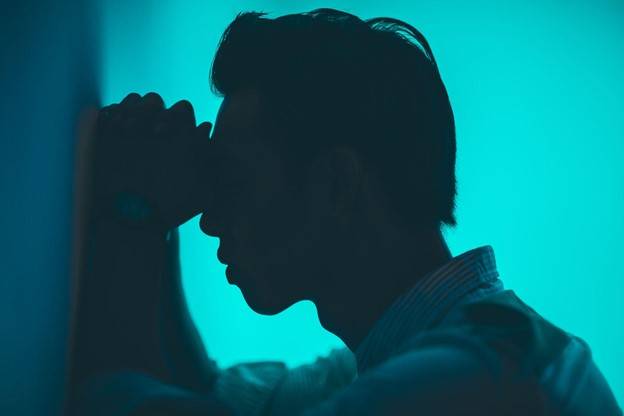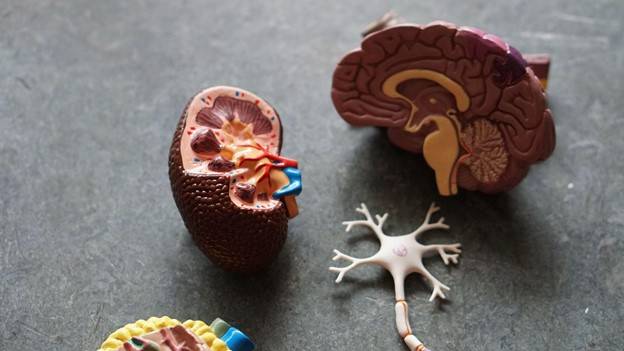
March 2022. This article is independently written by Shelby Golding. All opinions given are hers. Shelby has been certified as a personal trainer and nutritional specialist since 2007. In 2008, she found her passion for writing about these topics and hasn't looked back.

been certified as a personal trainer and nutritional specialist since 2007. In 2008, she found her
Pain and stress have a symbiotic relationship in the body. Chronic pain causes stress, and chronic stress worsens pain. Both are physical responses to threats to the body's homeostasis. They trigger a reaction to alert the person that their life is in danger and prompt the decision-making process to save them from harm.
Over time too much stress and pain deplete our resources, making it more difficult for us to find balance. Eventually, the imbalance becomes too much to correct and the body responds by developing life-threatening diseases or death.
To understand the connection between pain and stress, we need to look at how stress causes pain and vice versa.
Pain from Stress
About one in three Americans believe they live with extreme or chronic stress. Chronic stress changes a person’s mood, causing irritability, anxiety, and depression. It also impacts the physical body by increasing your heart rate, raising blood pressure, slowing down digestion, and increasing muscle tension.
Muscle tension is an automatic response to stress. Usually, muscles return to their normal, relaxed state after the threat of danger has passed. However, in people with extreme or chronic stress, the tension never goes away as cortisol floods the system on a regular basis.
Stress often manifests as headaches and back, neck, or shoulder pain.
Headaches from stress are called tension headaches that make it feel like a band is tightening around your forehead. Tension headaches are the most common type of headache and are often accompanied by neck and shoulder pain.
Stress from Pain
If it were not for stress, chronic pain would not exist. Your body responds to pain by instigating a stress response. First, the immune, nervous, and endocrine systems kick into gear, flooding your body with hormones. Second, cortisol, the stress hormone, increases inflammation to keep you in fighting shape while the threatening event progresses.
However, that same inflammation triggers the pain receptors in the body, which means you will experience more pain with fewer stimuli.
To top it off, the situations that cause us stress are not the same as they used to be. For example, a lion attack is over at a certain point, and you either survived or you didn't. But our stress response works exactly the same way to a lion attack as it does to our loved one slowly dying from disease, or a poor marriage, or dissatisfaction with our job.
As the issue continues unresolved, the stress response keeps on reacting. Eventually, the inflammation causes the entire nervous system to become more sensitized, and whatever pain we are experiencing increases dramatically. Even injuries that appear to be healing could be exacerbated during times of stress.
Our Adaptable Brain

One thing that we know about the brain is that it was built to keep us alive no matter what the situation. It adapts to the floods of stress hormones and increases inflammation by making stress or pain chronic.
The problem is that once the brain adapts and new neural pathways are created, it can be challenging to make them go back to normal. That is why chronic pain and chronic stress are so dangerous. They instigate a permanent rerouting that may take years of work to undo.
Treating the stress response can help lessen chronic pain. Notably, relaxation techniques such as body-scan meditation, deep breathing, or massage are known to improve mood and daily function in people with chronic pain. These techniques allow you to rewire your brain and even decrease your body's perception of pain.
The Connection
You have more control over your fight-or-flight systems than you realize. So next time you are experiencing increased pain during a time of stress, take a deep breath, do a quick body scan, or sit quietly for five minutes and see if you notice a difference!
And forget to use your Kailo Pain Patch to make it easier to deal with pain and stress in your life. Kailo is designed to relieve pain in seconds and a recent study showed 97% of users were extremely satisfied with Kailo over oral medication.
Disclaimer: Kailo should not be used if you have a pacemaker or if you are pregnant. Always consult your doctor or health care professional before using Kailo.






